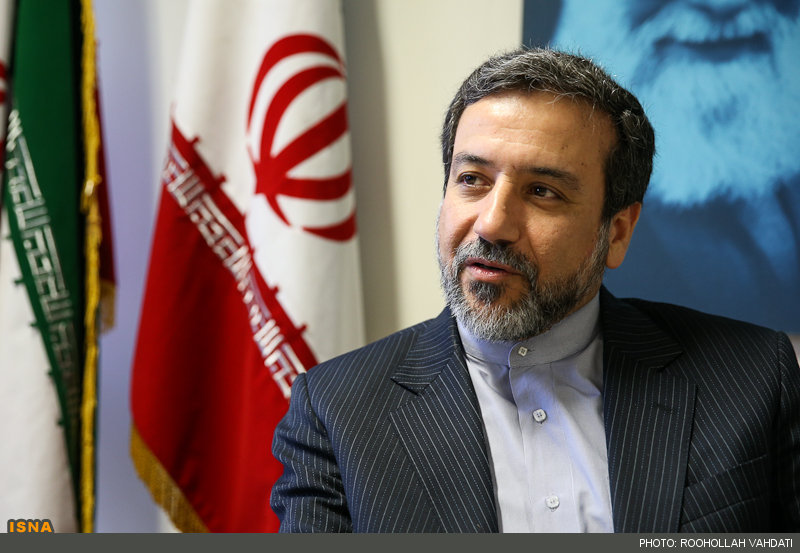Iran has own options against U.S. violations of nuclear deal: Araqchi

Iran says it could resort to its own options if the mechanisms featured in its 2015 nuclear agreement with world powers, including the U.S., fail to force other parties to live up to their end of the bargain.
Iranian Deputy Foreign Minister for Legal and International Affairs Abbas Araqchi, who heads the Iranian task force overseeing the implementation of the agreement, made the comments on Thursday following talks in Vienna with Yukiya Amano, the head of the International Atomic Energy Agency (IAEA).
Araqchi is in Vienne to attend a new meeting of the Iran-P5+1 Joint Commission, which monitors the implementation of the nuclear deal, officially called the Joint Comprehensive Plan of Action (JCPOA). The committee comprises representatives of the signatories to the deal and regularly meets in the Austrian capital.
In an interview with Press TV, Araqchi criticized the US for poisoning the atmosphere for the global business community seeking to work with Iran in the post-JCPOA era.
“Unfortunately, it has become a bad habit [for] the US. Whenever they do their commitments, for example they extend their waivers, which is their responsibility [as part of] the JCPOA, they add some poison to that by adding new names” to their sanctions list, he told Press TV.
Iran and the P5+1 group of countries -- the U.S., the UK, France, Russia, and China plus Germany -- inked the deal in July 2015. It lifted nuclear related sanctions on Iran, which, in turn, put certain limits on its nuclear work.
The IAEA has invariably certified Iran’s commitment to its contractual obligations since January 2016, when the deal took effect.
The U.S., however, has prevented the deal from fully yielding. Washington has refused to offer global financial institutions the guarantees that they would not be hit by American punitive measures for transactions with Iran.
Since U.S. President Donald Trump’s January inauguration, Washington has, on three occasions, slapped sanctions on Iran over its national missile program. This is while the missile work does not violate the JCPOA.
Iran has reacted by sanctioning some American entities. It has also raised the issue of the U.S. lack of commitment at meetings of the Joint Commission.
Araqchi further said Iran would bring up its complaints about the US behavior at the Commission’s Friday meeting. It is up to the Commission to decide whether Washington is violating the deal as well as the proportions of such violations, he said.
He said referring the matter to the Commission has helped amending the situation in some cases. However, he added, “if the arbitration mechanisms enshrined in the JCPOA do not give us [the desired] result, we have certain options before us.”
“We have prepared ourselves for each and every scenario which may happen. There are mechanisms in the JCPOA and there are plans by Iran to protect its rights and its benefits,” he added.
The official also Iran, itself, would decide the reaction to U.S. breaches of the deal, he said, noting that the JCPOA has given Tehran such an option.
“Iran’s [verified] commitment to its obligations under the JCPOA as opposed to the US lack of commitment constitutes a forte for Iran on the international arena,” the official noted. “This is partly due to good cooperation between Iran and the IAEA.”
(Source: Press TV)
